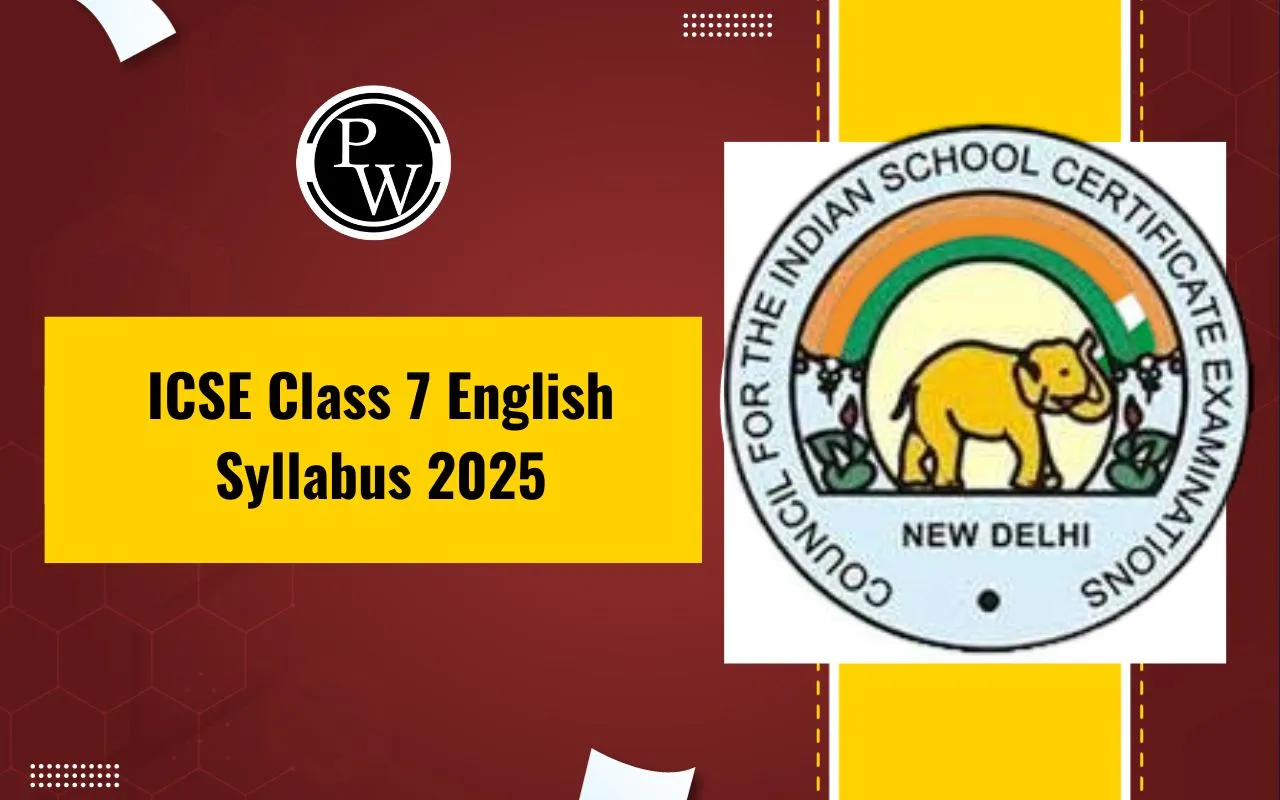
ICSE Class 7 Chemistry syllabus 2025 introduces students to fundamental chemical concepts and their practical significance. It aims to develop a clear understanding of matter, its properties, and how substances interact and change. The syllabus encourages students to grasp core ideas such as atomic structure, elements, compounds, and the distinction between metals and non-metals. Through a mix of theory and practical applications, it prepares learners for more complex chemistry topics in the future. Regular practice, revision, and hands-on activities are essential to mastering the subject and performing well in exams.
ICSE Class 7 Chemistry Syllabus 2025
ICSE Class 7 Chemistry syllabus introduces students to core concepts in Chemistry through interesting, practical, and easy-to-understand topics. It builds a strong base for advanced learning in higher grades by covering essential areas like matter, chemical reactions, atoms, and the atmosphere. Through real-life examples and hands-on understanding, the syllabus promotes scientific thinking and curiosity about the world around us.
Check the table below for the complete list of chapters included in the syllabus.
|
ICSE Class 7 Chemistry Syllabus |
|
|
Chapter Number |
Chapter Name |
|
Chapter 1 |
Matter and Its Composition |
|
Chapter 2 |
Physical and Chemical Changes |
|
Chapter 3 |
Elements, Compounds and Mixtures |
|
Chapter 4 |
Atomic Structure |
|
Chapter 5 |
Language of Chemistry |
|
Chapter 6 |
Metals and Non-Metals |
|
Chapter 7 |
Air and Atmosphere |
Chapter-Wise Summary
1. Matter and Its Composition: This chapter explains what matter is and introduces its basic forms—solids, liquids, and gases. Students learn about the properties of matter and how matter is made up of tiny particles called molecules and atoms.
2. Physical and Chemical Changes: Students explore the difference between changes that are physical (like melting) and those that are chemical (like rusting). The chapter also covers characteristics of these changes and their examples from daily life.
3. Elements, Compounds, and Mixtures: This topic introduces the basic types of substances: elements, compounds, and mixtures. Students learn how elements combine to form compounds and how mixtures can be separated using different methods.
4. Atomic Structure: Students are introduced to the concept of atoms and their structure, including protons, neutrons, and electrons. This chapter lays the foundation for understanding chemical reactions and formulas in higher classes.
5. Language of Chemistry: This chapter teaches the symbols of elements, chemical formulas, and basic chemical equations. Students learn how to read and write simple chemical expressions.
6. Metals and Non-Metals: Here, students learn the physical and chemical properties of metals (like iron, copper) and non-metals (like oxygen, sulfur). It also covers their uses in daily life and how they behave in reactions.
7. Air and Atmosphere: This topic focuses on the composition of air, the importance of gases like oxygen and carbon dioxide, and the role of the atmosphere in supporting life on Earth.
ICSE Class 7 Chemistry Syllabus PDF Download
To make study planning easier for students and parents, the ICSE Class 7 Chemistry syllabus is available in a convenient PDF format. This syllabus outlines all the chapters to be covered in the academic year 2025, helping students stay focused and organized.
Whether you're just starting your studies or revising before exams, having a clear view of the syllabus is very helpful. You can download and refer to the syllabus anytime even without the internet to track progress and plan your preparation.
ICSE Class 7 Chemistry Syllabus 2025
Study without using the internet
Benefits of Using the ICSE Class 7 Chemistry Syllabus
- The syllabus follows a logical structure, moving from basic topics like matter and mixtures to more advanced areas like atomic structure and chemical symbols.
- It strengthens students’ understanding of chemical reactions, elements, compounds, and the behavior of substances, preparing them for higher-level science.
- Each chapter has clear learning objectives, making it easier for students to concentrate on important concepts and avoid distractions.
- Topics such as air, metals, and non-metals connect theory with real-world examples, encouraging observation, inquiry, and interest in environmental science.
- With all chapters listed in order, students can create a monthly or weekly study plan, manage revision time, and prepare well for tests.
- Knowing the complete syllabus helps students avoid surprises in exams and ensures that no topic is missed during revision.
- Teachers can build lesson plans around the syllabus, and parents can use it to monitor their child’s learning and provide timely support.
ICSE Class 7 Chemistry Syllabus 2025 FAQs
Who designs the ICSE Class 7 Chemistry syllabus?
What are the main topics in the Class 7 Chemistry syllabus?
Is the syllabus for Chemistry in Class 7 theoretical or practical?
How should students prepare for Chemistry in Class 7?



